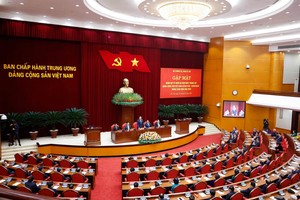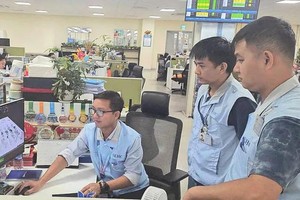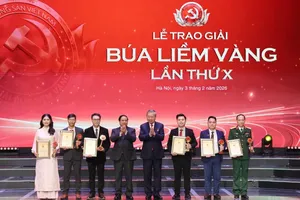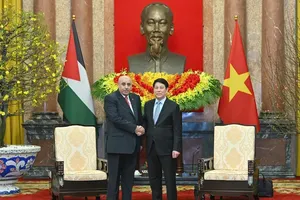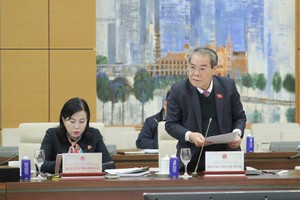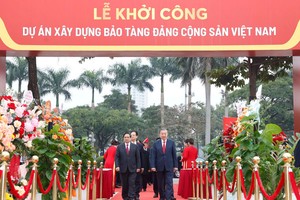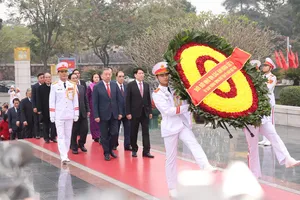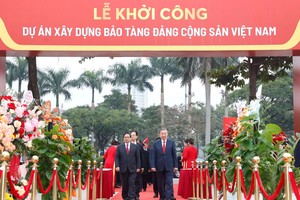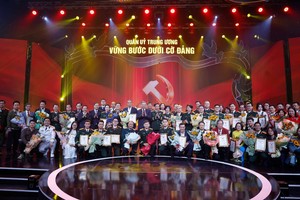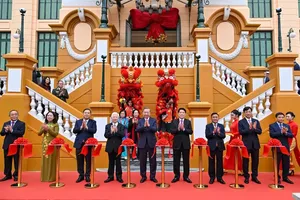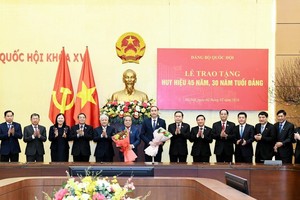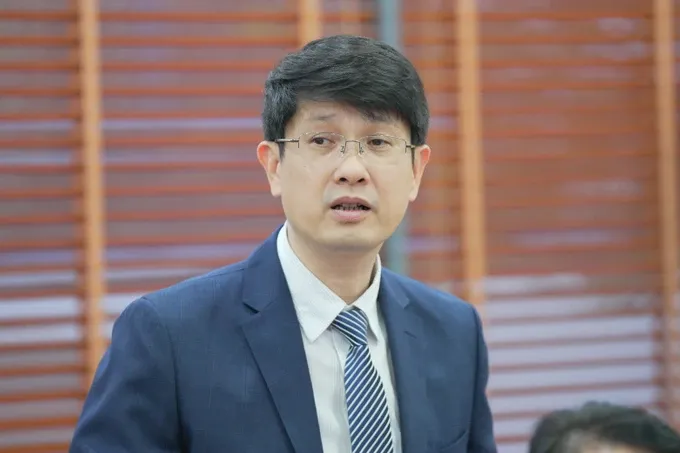
The Ministry of Home Affairs yesterday held a press conference to inform about three decrees related to the regime and policies for personnel work when arranging the apparatus; regimes and policies to attract talented people to the public sector.
At the press conference, Mr. Nguyen Tuan Ninh explained that under Decree 179, Vietnamese experts, managers, business administrators, and leading scientists of working age who wish to pursue long-term roles in administrative agencies or public service units may be considered for appointment as civil servants or public employees.
Notably, the Government’s Decree No. 179/2024/ND-CP outlines policies to attract and employ talented individuals in agencies, organizations, and units affiliated with the Communist Party of Vietnam, the State, the Vietnam Fatherland Front, and socio-political organizations. The decree specifies that exceptional students and gifted young scientists will be recruited as civil servants through a special recruitment process. Furthermore, it mandates that ministries, agencies, and central and local agencies prioritize staffing to facilitate the recruitment and retention of these individuals.
He stated that following the recruitment process, there will be appealing subsidy policies in place. Specifically, outstanding students and gifted young scientists who are hired as civil servants will not only receive their full salary during the probationary period but will also be entitled to an additional allowance amounting to 150 percent of their current salary based on the existing salary coefficient for a duration of five years from their recruitment date.
Moreover, when Vietnamese experts, managers, business administrators, and leading scientists are hired as civil servants, they will be appointed, their salaries will be classified into the salary scale and professional title corresponding to the assigned job position, and they will receive a 300 percent increase in their current salary.
He added that if experts, managers, business administrators, and leading scientists are either Vietnamese or foreign nationals under labor contracts, heads of ministries, agencies, and central and local agencies have the authority to determine the remuneration levels. This decision should be based on the specific work requirements, the capabilities and contributions of the experts and leading scientists, as well as the available funding sources for implementing policies aimed at attracting talented individuals within these agencies.
In addition, ministries, agencies, central and local agencies are greenlighted to adopt other support policies for talented people after considering their organizations’ budget and mobilized resources according to the provisions of law to implement policies for such special staff.
He stated that outstanding graduates and skilled young scientists, once recruited as civil servants, are provided with advantageous conditions by their respective agencies and units. These include being prioritized for planning and appointments to leadership, management, or senior expert roles across various sectors at both central and local levels.
Additionally, scientists with strong research capabilities receive targeted training to develop into leading experts in their fields and are entrusted with overseeing scientific research projects and topics at the ministerial level, provincial level, and higher.
Mr. Nguyen Tuan Ninh emphasized the importance of internal promotion within the organization. He stated that, in addition to recruiting new talent from external sources, it is crucial to identify and promote existing civil servants, and public employees who possess outstanding qualities and abilities. These individuals, having accumulated valuable knowledge and experience within the organization, typically possess the necessary qualifications, expertise, and professionalism to effectively fulfill new roles and contribute to team improvement.
To further incentivize and retain top talent, a new policy will be implemented to provide an additional monthly allowance to exceptional cadres, civil servants, and public employees. This allowance, equivalent to 150 percent of their current salary, will be granted upon official recognition by the competent authority. This policy mirrors the existing allowance structure for attracting outstanding students and talented young scientists.
Additionally, talented civil servants, and public employees will be given priority consideration for advancement within the organization, including appointments to leadership and management positions and promotions to the rank of senior experts.
Furthermore, these individuals will be afforded opportunities for professional development, including at least one study trip, research engagement, or professional exchange program domestically or internationally each year. All expenses incurred during these professional development activities will be fully reimbursed in accordance with established regulations

